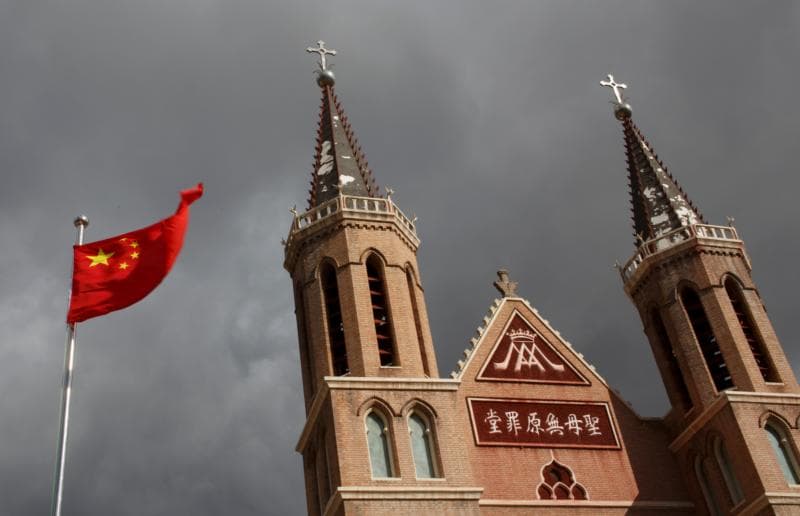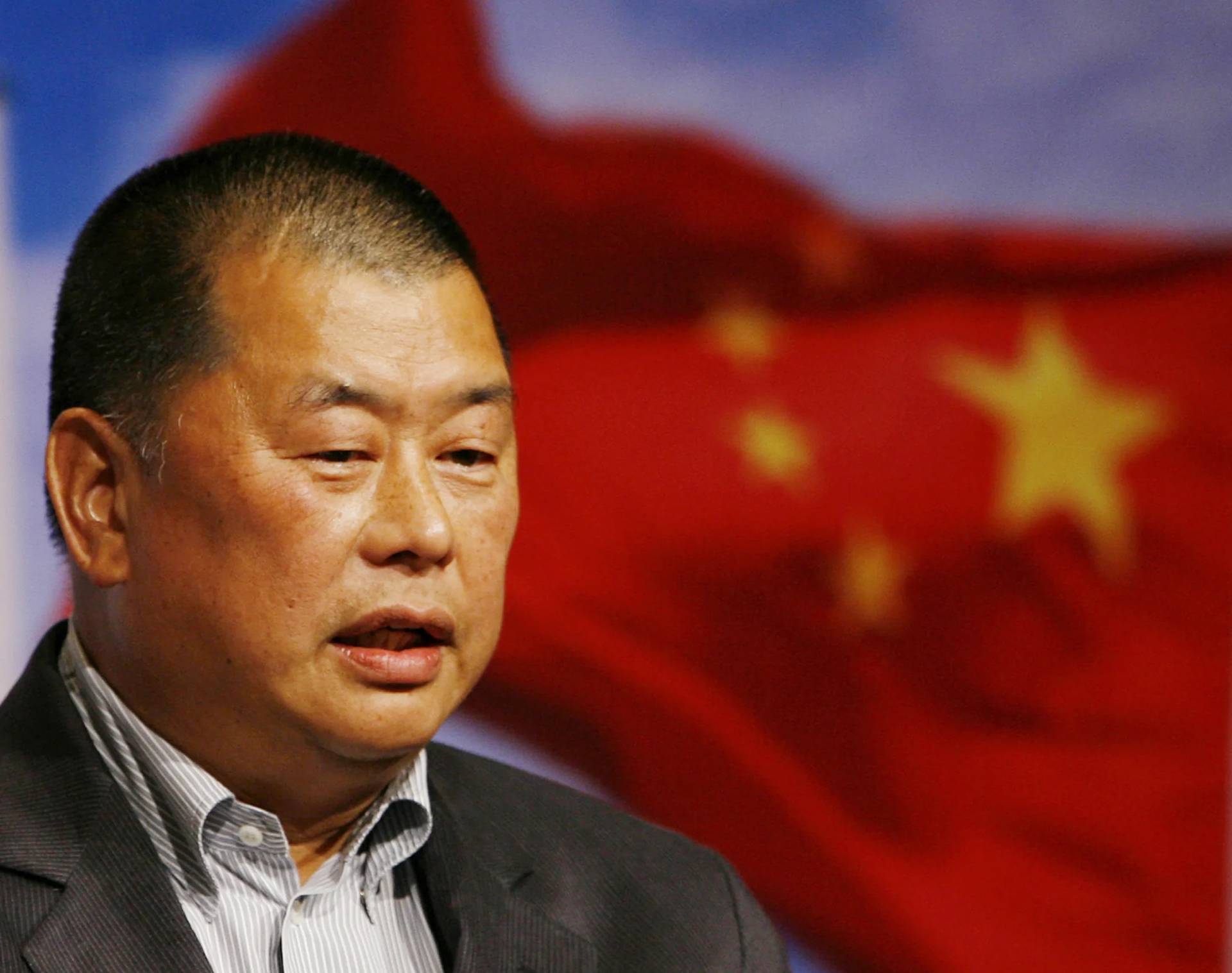ROME – As the Vatican sits poised to renew its historic agreement with China on the appointment of bishops later this month, one of the Catholic Church’s leading experts on Chinese affairs has argued that while the desire for dialogue is understandable, there is still nothing to show for the deal two years later.
“I understand the positivity, the temptation to have this relationship with China, but I have to say that there is very little fruit,” said Father Bernardo Cervellera, voicing his hope that “the Vatican, in renewing the agreement, instead of undergoing still more of the demands of China, puts more posts” in the way of their demands.
Head of Asia News and a former missionary in China, Cervellera spoke during a Sept. 4 online discussion hosted by the Acton Institute, a free-market Catholic organization, offering his evaluation of the state of the Asian continent amid the coronavirus pandemic and the new national security law in Hong Kong.
Speaking of the provisional agreement on the appointment of bishops the Vatican made with China in 2018, which is up for renewal this month, Cervellera noted that many officials on the Vatican’s side have praised the deal as something both positive and fruitful, while “China has never said anything.”
He referred to one article printed in the Global Times, a Chinese newspaper with ties to the Communist Party, which quoted Vatican officials praising the agreement, but which contained no references to officials or opinions from members of the Chinese government.
The fact that China has been so silent about the agreement, he said, leaves him with two impressions: either the Chinese Communist Party sees the agreement as something positive, or that in their view, “the stakes are increasing so much that they ask the Vatican for everything.”
Everything, in this sense, he said, would mean that “the Vatican must give the ‘okay’ for everything that China does, and certainly they must interrupt their dialogue with Taiwan.”
“This is certainly the fundamental motive for which the Chinese Foreign Minister was so interested in the relationship with the Vatican,” he said, “because in this way, they take away from Taiwan the only point, the only embassy they can have in Europe.”
Currently Taiwan holds diplomatic relations with just 15 countries, the Holy See being its only diplomatic tie in Europe.
Cervellera admitted that he understand why pursuing dialogue with China is appealing, given that since Mao Zedong stepped in to rule the Communist Party in 1949, the door has been firmly closed, despite any attempts from previous pontiffs, including St. John Paul II and Benedict XVI.
“China never wanted a relationship; they always closed the windows. They never wanted to dialogue. Now that the Vatican has this very thin thread of dialogue, I understand that they want to keep it,” Cervellera said, but added that in his view, as far as the agreement goes, there has been little to show for it in the two years that have elapsed since it was signed.
“This agreement in itself should be for the naming of new bishops, but since the agreement was reached, not one new bishop has been named,” he said, noting that of the two bishops who have been appointed and the three others who have been recognized by the government in the past two years, all of them had been selected years prior to the 2018 agreement.
“So, you can’t say that thanks to the agreement all this has happened,” he said, voicing his hope that going forward, there will be more to show.
Cervellera also offered his assessment of Asian continent in light of the coronavirus, highlighting three elements he said have stood out to him in the past few years, some of which have come into clearer focus amid the coronavirus and the protests in Hong Kong.
Not only have the economies of Asia, including China, been brought “to their knees” by the coronavirus, but leaders are increasingly “proud,” Cervellera said, adding that for him, this means “it no longer matters [for them] to maintain the image of a person that is open.”
“All of them are transforming into personal dictators that will go on for decades,” he said, naming China, Pakistan, Thailand, and Myanmar as victims of this new trend, which he said often results in these leaders “suffocating human rights with impressive ease,” particularly those of minorities, going unchallenged by the global community.
Coupled with this is an increasing restlessness among young people, who want “to find some meaning for their lives, and their work.” Whereas most of Asian culture is traditionally centered on the community, young people on the continent are increasingly focused on what a given situation means for them personally.
“This is something very new, this is something creating jolts in many parts of Asia,” Cervellera said, adding that this is something that has come to the fore particularly in Hong Kong, where large-scale protests are dominated mostly by young people, some of whom are just 13 or 14 years old.
Since last June Hong Kong has been gripped by massive protests, first in opposition to a bill that would allow extraditions to mainland China, although that bill was eventually withdrawn, and now over a new national security measure drafted by Beijing meant to crack down on what they define as “terrorism,” “subversion,” and foreign interference in internal affairs.
“The thing about the young people of Hong Kong, is that they risk all this to protest against China, against the government, and they risk not finding work. They risk not being able to go to school or university, because China is implementing very, very strict laws,” he said. “So these young people really are risking everything, but for what? For their freedom.”
These are young people “who want to overcome religious fundamentalism, ideologies,” he said, adding that in China, “no one believes in Communism. No one. Many people place themselves under the Communist tree,” not so much out of conviction as for the social benefits.
“In China, you are always guilty and must prove your innocence. It’s not that you are innocent until proven guilty, it’s the opposite,” he said, adding that “Everything is in service to the party.”
Cervellera also pointed to the rapid growth of the Catholic Church on the Asian continent, noting that while Asia contains just over half of the global population, with around 3-4 billion people, there are some 120-130 million Catholics, which he said is an “impressive” number given that Christians are an often persecuted minority.
“At least 60 percent of Asian countries have problems with religious freedom. So, this Church that is persecuted, that has limits on religious freedom, is still growing by 5 percent every year,” he said, noting that in Europe, the number of Christians has largely stayed the same, thanks to the influx of Christian migrants.
Christian migrants having children in Europe are balancing out the number of deaths, he said, but noted that in comparison with other parts of the world such as Asia and Africa, in Europe “there is little momentum for evangelization.”
Follow Elise Ann Allen on Twitter: @eliseannallen













